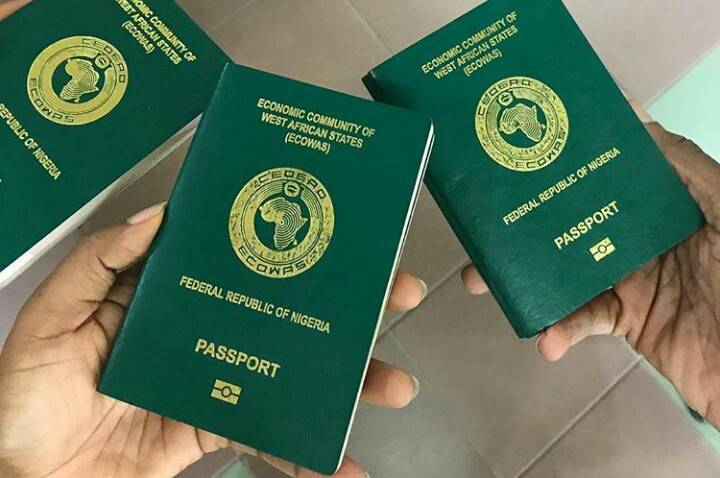There has been a rise in the number of digital nomads and remote workers, necessitating the development of infrastructure to support remote talent.
Data from a global HR solutions provider identified the cities best positioned to compete for remote jobs and benefit from the increased taxable income. Here are the 5 countries
1. Estonia
Some countries are setting the standard for having the infrastructure in place to support remote working. Tallinn in Estonia, is one of the top cities for startup founders and remote workers, according to the local talent index, followed by Barbados, Dubai, Georgia, and Bermuda.
Tallinn’s inclusion is surprising, as the Estonian capital is rarely mentioned as a popular location for remote workers to live.
The country has done well in identifying remote work opportunities and demonstrating that the city has a lot to offer visitors. There is also a lower cost for talent. Hiring people in low-cost locations may not sound appealing, but if you are a developer paying for your staff in London as well as studio rent, this is a good option.
Through e-Residency, Estonia has already transformed the way a country serves people outside of its borders. With the Digital Nomad Visa, Estonia is changing the way people around the world choose to work.
About E-residency in Estonia
- It is a safe, government-issued digital identity for online personal authentication.
- Remote entrepreneurs can access Estonia’s e-services online
- The visa enables one to create and manage a company online; declare taxes and access banking/payments. It is also a low-cost, low-bureaucracy alternative
- Visit e-resident.gov.ee to apply online. The process takes 3-8 weeks
- Receive your e-Residency kit at pick-up locations around the world after verifying your identity.
How to Apply
- Apply to start a company that is 100% online and run remotely
- No paperwork, physical meetings, or bureaucracy
- It allows you to do business digitally from anywhere (backed by the Estonian government)
- Use Estonia’s e-services to manage your business remotely
- Apply here
About Digital Nomad Visa (DNV)
- Allows remote workers to stay in Estonia temporarily for up to a year
- For digital nomads who can work online regardless of location
- For an employer registered abroad or their company registered abroad, or as a freelancer for clients mostly abroad
- Apply at your nearest Estonian Embassy. The process takes up to 30 days after which you pick up your visa at the nearest Estonian Embassy. The usual visa rules and procedures apply.
- Remaining in Estonia on the DNV does not entitle you to Estonian citizenship or permanent residency. The DNV is not a permanent residence permit, but rather a temporary stay. In addition to proof of digital nomad eligibility, standard Estonian Government visa rules and procedures apply.
Eligibility
- To be eligible, you must prove that you can work in a location-independently using telecommunications technologies; you’re essentially a ‘digital nomad’.
- In addition, you will need to prove that you fit under any one of the three following categories:
- You work for an employer registered in a foreign country and have a work contract with that employer;
- You conduct business for a company registered in a foreign country and are a partner/shareholder in that company; or
- You offer freelance or consulting services primarily to clients with permanent establishments in a foreign country and with whom you have contracts.
How to Apply
- Have an active employment contract with a company registered outside of Estonia, conduct business through your own company registered outside of Estonia, or work as a freelancer for clients primarily outside of Estonia.
- During the six months preceding the application, your income met the minimum threshold (€3504 gross of tax).
Apply here
2. Barbados
A remote worker visa that allows people to legally work and live in Barbados for 12 months with the option of extending with their family has been available since July 2020.
Candidates who want to apply for this visa must:
- Present proof of employment.
- Be able to carry out their job responsibilities online.
- Must be able to pay for the costs of living in Barbados.
- Within 28 days of stamp approval, applicants must pay a fee of $2,000 for an individual and $3,000 for a family.
- During the 12-month stay the holder of the stamp will not be liable for any local income tax.
Find out more details on applying to the Barbados Welcome Stamp.
3. Dubai
Dubai provides remote workers from all over the world with a one-year virtual working program that allows them to live alone or with their family while working. The program’s participants will have access to daily services and are able to enroll their children in Dubai’s public schools.
Candidates must have a current passport, a valid health insurance policy with UAE coverage, employment verification, and a minimum monthly income of $5,000 in order to be eligible.
4. Georgia
Since August 2020, citizens from 95 different countries have been able to visit Georgia and conduct remote employment there for at least 180 days under the new state program “Remotely from Georgia.”
The program is intended for full-time remote workers, independent contractors, and business owners who can demonstrate their ability to pay Georgia’s taxes and have a minimum monthly income of $2,000 per month. Additionally, digital nomads must be prepared to commit to a minimum 180-day stay in Georgia.
Find out more details on Remotely from Georgia program.
5. Bermuda
Apply for a long-term visitor’s residential certificate if you wish to work remotely from Bermuda, either alone or with your family, Apply for a residential certificate if you wish to become a long-term visitor. With this visa, you will have access to day-to-day services.
You will not be required to demonstrate a minimum monthly salary, but other requirements will be established:
Applicants must be at least 18 years old and have the ability to pay the $263 application fee. Furthermore, one must demonstrate that they have no criminal record and must have valid health insurance, provide proof of employment, and demonstrate a consistent source of income.




